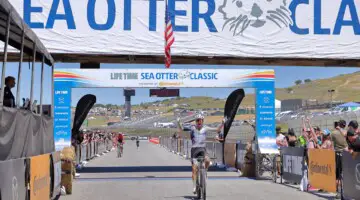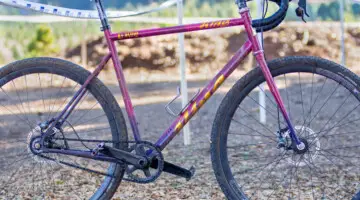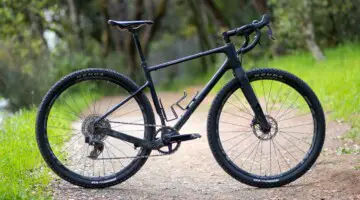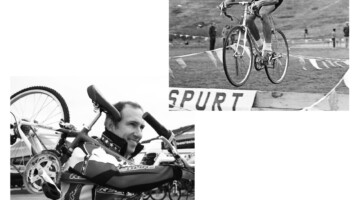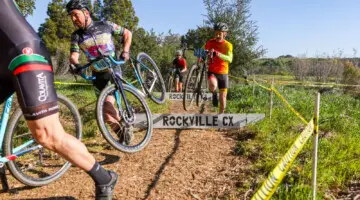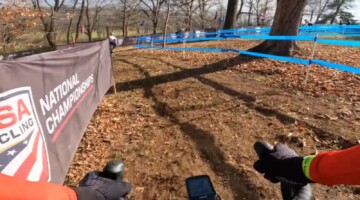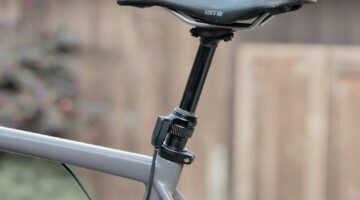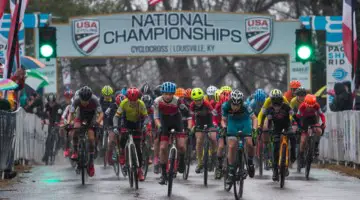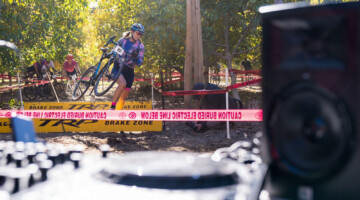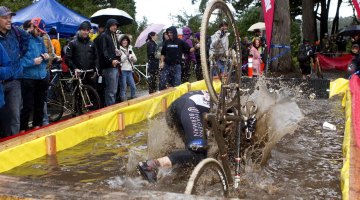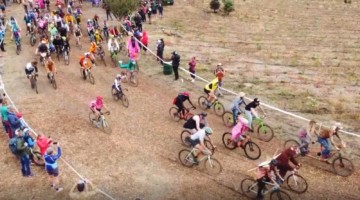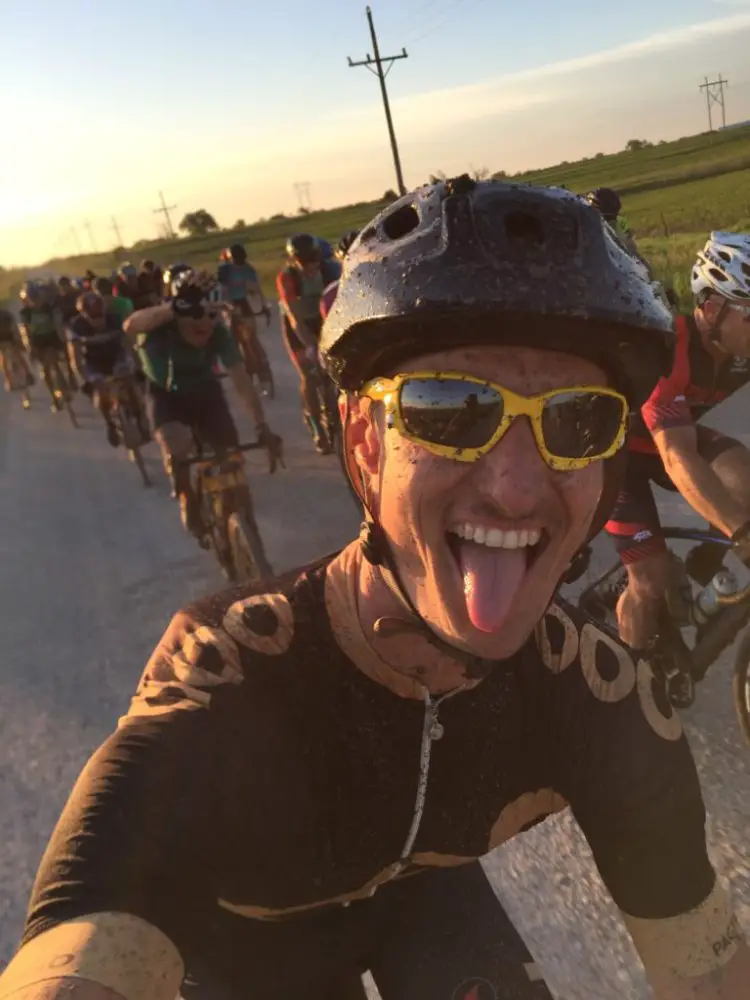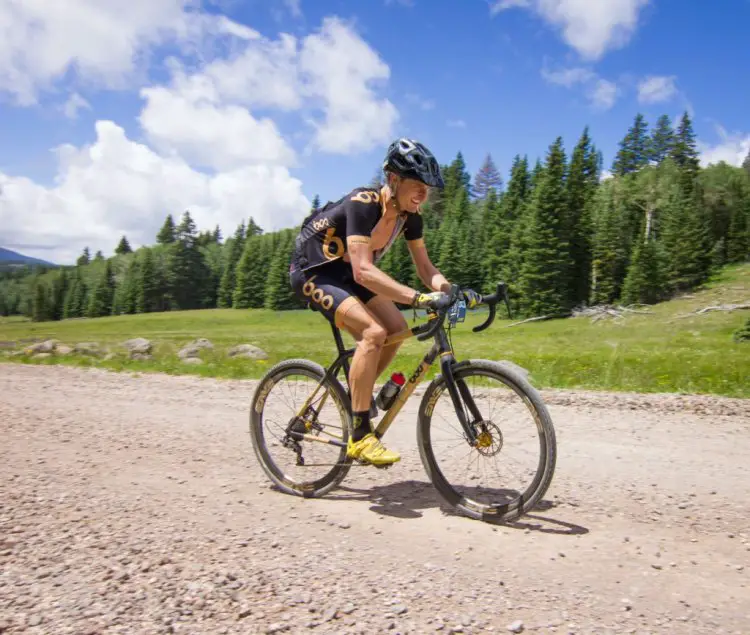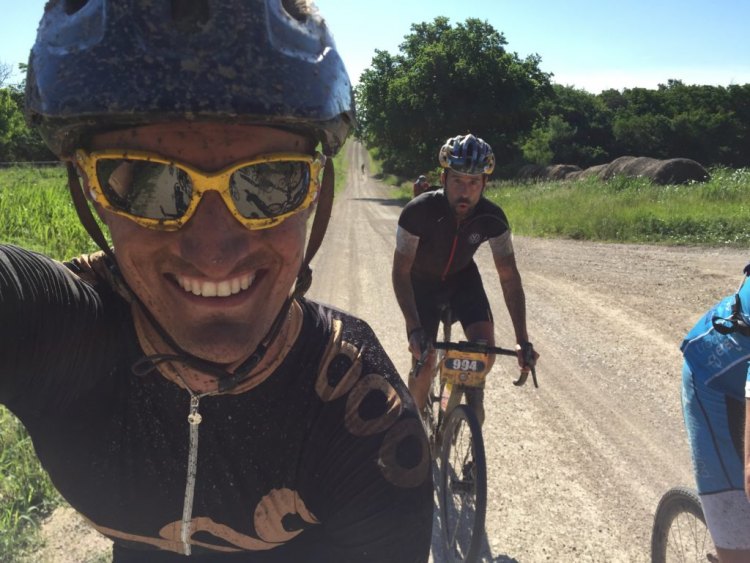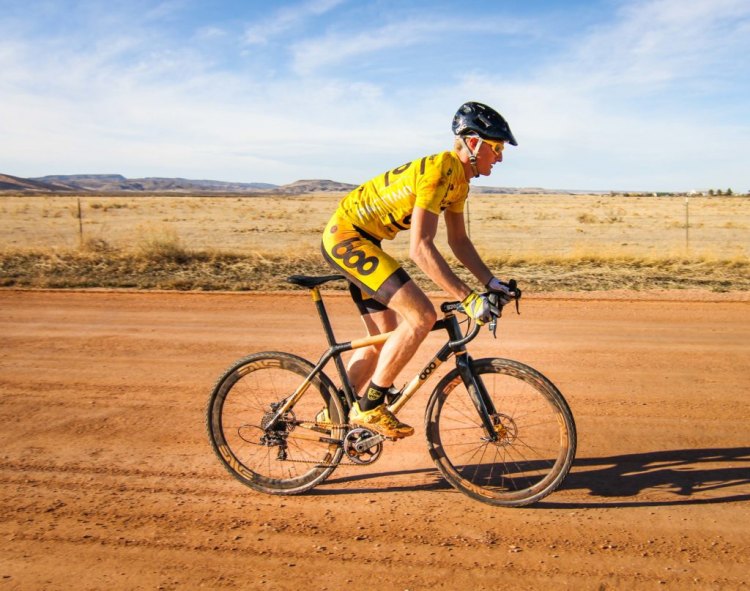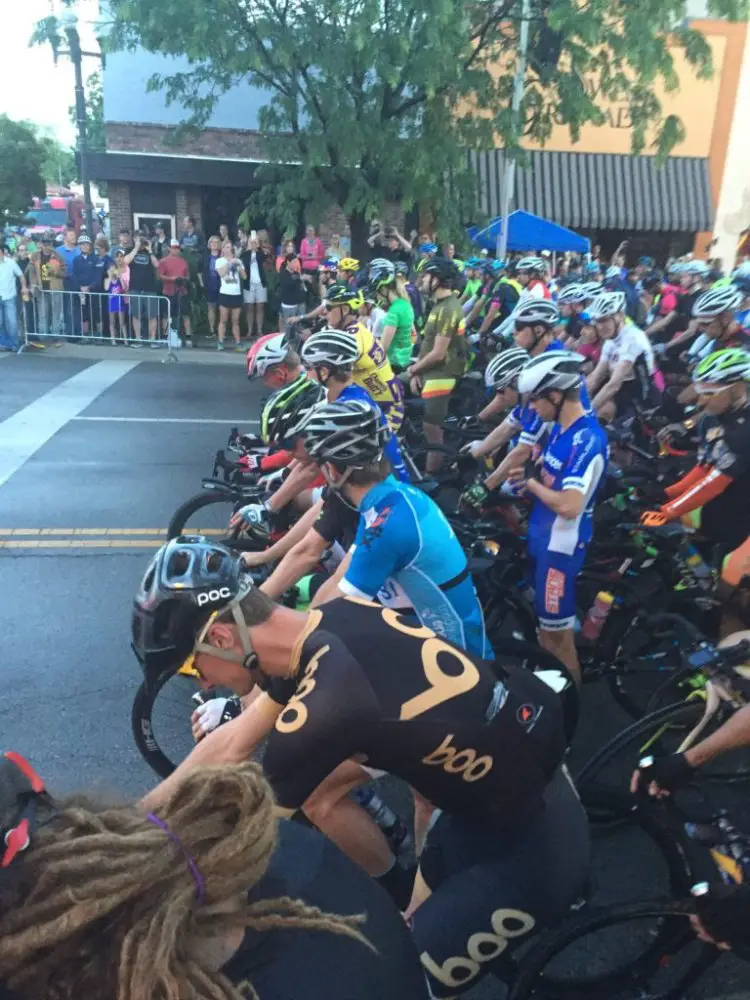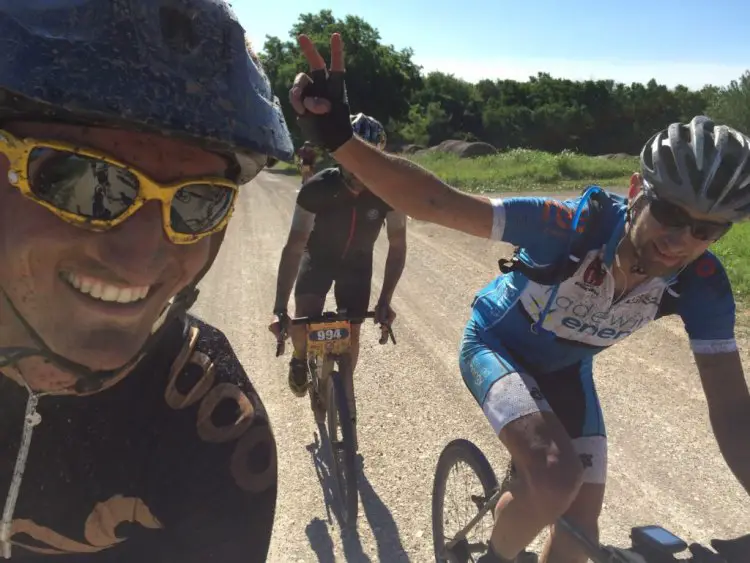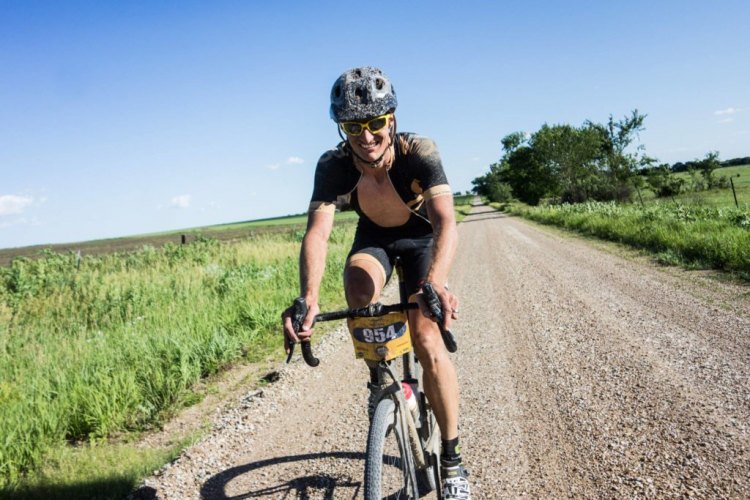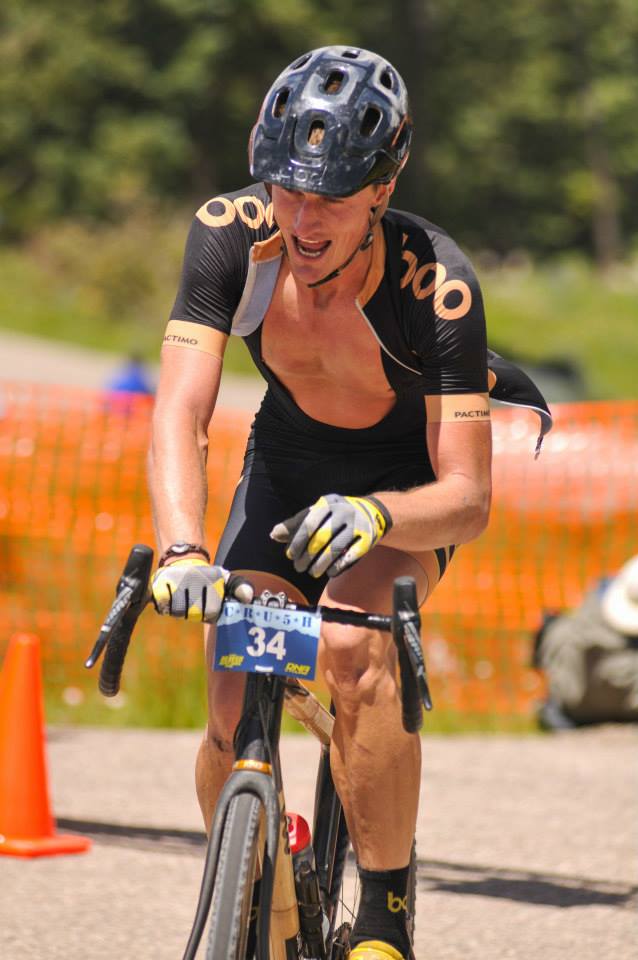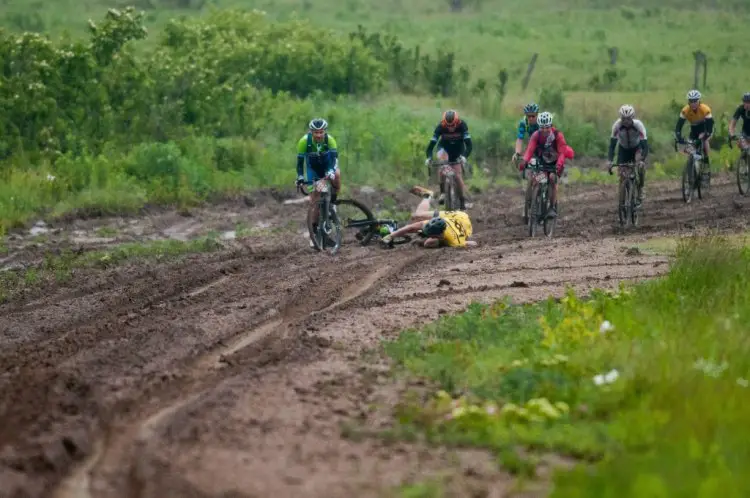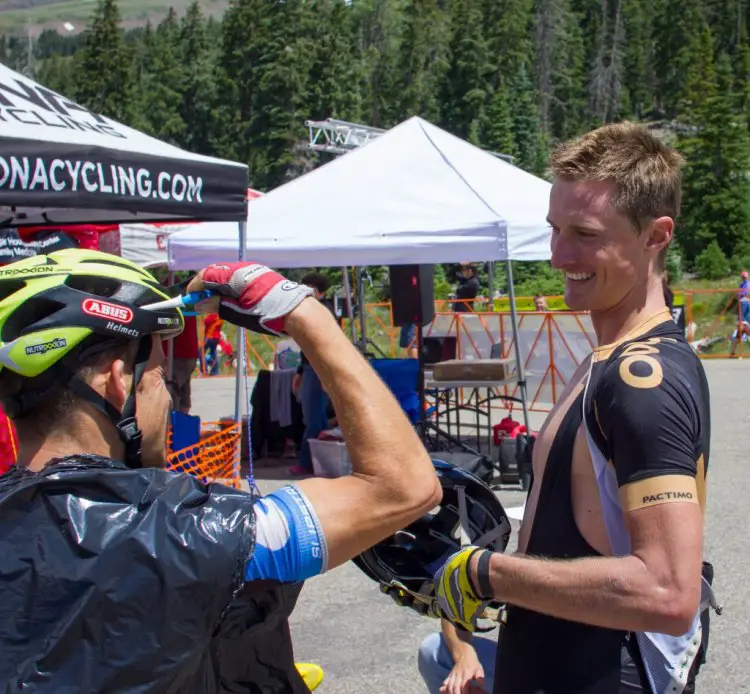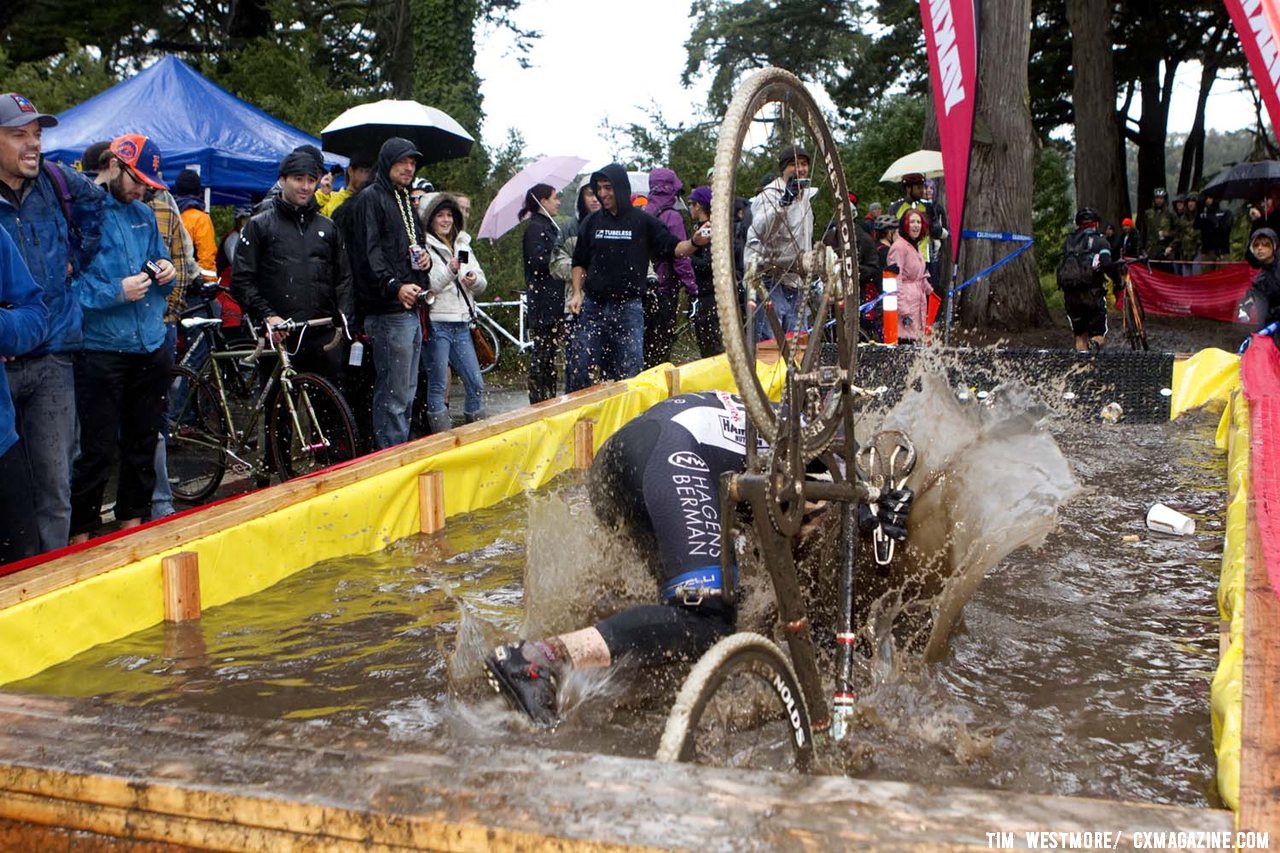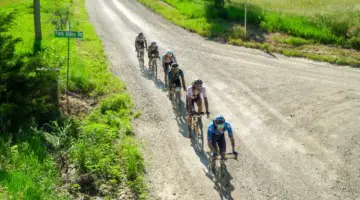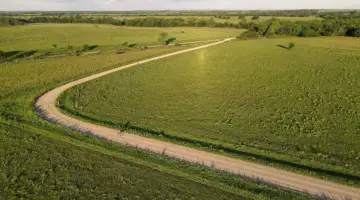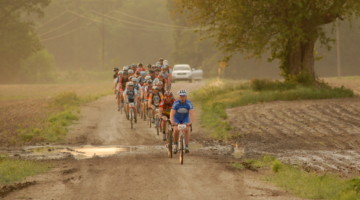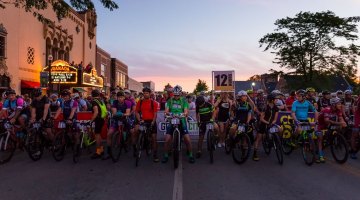As some may know, Nick Frey, CEO of Boo Bicycles, was disqualified from last weekend’s Dirty Kanza 200. The issue it seems pertained to receiving outside assistance in a race that promotes neutral support. From Frey’s perspective, there’s a grey area there to be discussed. So Frey took to his blog and wrote about his Dirty Kanza experience and the issues he feels his situation raises.
We’re presenting Frey’s blog post in full and unedited, below. Words and photos by Nick Frey, unless otherwise noted.
Update: The promoter of Dirty Kanza has disclosed that Frey was disqualified due to his team vehicle being on course, not taking water.
Dirty Disqualification
by Nick Frey
A man’s reputation…I’ve always been lucky enough to have mentors impress upon me the importance of mine.
Recently, you may have heard I was disqualified from a major cycling event that I’ve done twice and loved: the Dirty Kanza 200. It is one of the most challenging sporting events in which I’ve participated, and while it’s not a “governed” race like some of the international UCI events I’ve competed in, it still has its own set of rules. These rules are largely based on the emerging “gravel endurance racing” set of events which includes Trans Iowa, Almonzo, Battenkill Roubaix, the Overland, and the infamous Crusher in the Tushar, my first serious unsanctioned gravel race in which I enjoyed helping Tyler Wren win on a Boo.
These events have grown rapidly because, quite honestly, everyone is bored with all the other crap out there. Doing the local crit for the seventh time and risking a crash when a young-and-crazy kid clips a pedal while thinking his 14th place is going to get him a contract with a UCI Pro Team is simply not what gets folks out on the weekend anymore.
We at Boo have seen a tremendous demand for alternative-surface custom bikes, which is great because bamboo excels in these conditions. That is mainly because riders are looking to stay off roads and away from the deadly traffic as our best riding spots in the USA are becoming more densely populated and popular. The number of white bikes on the roadsides is staggering and horrifying, and the best way to combat becoming a headline is to take to the hills and the gravel, dirt, and more remote terrain that these new gravel bikes can take us.
I have weathered my “retirement” of sorts and kept riding at a high level thanks to a return to the dirt. I start racing mountain bikes in Iowa at the age of 14, and loved those epic adventures through all conditions with some of my best friends in the world. Competing in events on those same trails really pushed my competitive button, and I was hooked…but my future was the Tour and I hoped to get there.
After racing in almost 20 countries around the world, a couple national titles, and a lot of thrills, spills, stress, and heartache, I hung up the SPD-Rs for some SPDs. They definitely work better in coffee shops.
This move back to dirt reminded me how much more positive things are in that discipline than in road racing, where AGRO is simply the rule, rather than an exception to it. If you elbow someone into a curb at Superweek, you might be able to snag that $1500 crowd prime…and even worse, if you don’t elbow him, HE will and you’ll never forgive yourself. MTB racing is the most positive and encouraging environment I’ve ever been a part of…when I pass someone, no matter HOW hard they are breathing, they eke out the most positive “good riding buddy” or “keep it up!” they can manage. And I do the same when I’m the one being passed.
It’s a sign of not just respect for the difficulty of the event and the effort, but also of the comradery that treacherous events engender—it’s not just you against your competitors, it’s the competitors against the obstacle.
Fast forward to my experience with gravel racing. I was lucky enough to participate in the inaugural Crusher in the Tushar in 2011 with former teammate and eventual winner Tyler Wren. We were both encouraged by our mutual friend and epic athlete Burke Swindlehurst, along with a star-studded cast of top pros and elite amateurs, to pin up and suffer in a new and crazy event that ended up hooking a generation of washed-up roadies who now fulfill their masochistic needs in a safer and more positive environment than the oil-soaked roads of major cities with $20k on the line and elbows flying.
That race and the Tour of the Battenkill were the two events I *still* looked forward to on the calendar, even when I was 12 years into a career with so many spills I could not remember what scar came from which piece of bad luck. They made me respect just how difficult riding a bike through varied terrain could be. But they also helped me remember how positive and enthusiastic racers could be when they stopped racing AGAINST each other and instead raced WITH each other. That kind of positive vibe was what kept me motivated near the end of my career on the road, and encouraged me to move Boo in the direction of building bikes better suited to those epic types of terrain…out of pure selfishness, I needed better ride quality!
Fast forward one more time, to four days ago in Emporia, Kansas. This is a town now becoming famous in some circles for its epic terrain, and Dirty Kanza—which calls itself the “premier gravel event” in the USA—calls it home. I first read about this event when Chris Case of VeloNews wrote about his insane mental math concerning how many more miles equaled how many more hours equaled how much more suffering. And yeah, I can’t remember it too clearly, but those same disgusting numbers were going through my head for hours last Saturday.
It was hot and humid, not even close to what is possible in June in Kansas, but oppressive for a Colorado boy nonetheless. My preparation consisted of being wed to my soul mate, partying like it’s 1999, and putting new cleats onto new MTB shoes on the drive to KS the day before the race. It wasn’t ideal, and yeah, I didn’t know if I could even make it at all, but somehow got enough ducks in a row to float over I-70 for infinity and make it to number pickup before closing that night.
All that is to say, I did not give the event the respect it deserves, and didn’t read all of the rules or go to the rider meeting. I did the year before, but at this point in my life, remembering my own name has become difficult. For this, I apologize and recognize it’s disrespectful to the time and effort the promoters and volunteers have put into these aspects of the race.
My admission does not, however, profess complete lack of understanding—I do know how to race a bike and what rules exist in these events. The idea of taking outside assistance in a mountain bike race, for example changing a tire or fixing a mechanical, is something with which I am intimately familiar. It’s absolutely NOT condoned under any circumstances, unless the rider is withdrawing and simply riding back to the car.
So when I started DK on Saturday, my intentions were in no way planned to require outside assistance. And I can guarantee the same may be said for every other competitor there. We rolled out in cold and clear weather at 6AM and headed to the first checkpoint.
After a bunch of attacks that whittled the front group down to roughly 23 people, I was happy to know that I hadn’t yet made a big error and was on top of my fuel, hydration, and race strategy. The legs didn’t suck too much, and that was a surprise to me! All the big names were accounted for, and we were all waiting for the other shoe to drop.
After Dan Hughes attacked and was solo into the first checkpoint, we realized shit was getting real. Things broke up a bit through the first check, but I somehow found water from some nice people (I’m guessing someone else’s support crew) and continued on.
This water, I’ve now learned, is considered illegal because it was “non-neutral”. I’m still not sure what specifically got me DQ’ed, but for full and honest disclosure, I guess this is against the rules. And yeah, I didn’t have anyone in the feed zone for me…Drew was not there, and I had no friends who could help on short notice. After barely making the event’s starting line, I felt lucky to just be there at all, and support was something I figured I would find.
We continue to race, and more attacks launched…but Brian Jensen threw down the gauntlet, and Ted King was with him. I missed the move, and crazily bridged up to the leaders on a tough brake-rubbing section of B road! I was so proud, but then the warning bells started ringing and I literally could not pedal my bike hard enough to stay latched on. Yup, I bridged up and then got dropped in the same few minutes, durp!
All this was just the foreplay. I cannot tell you how difficult the remaining 135 miles were…I honestly remember little of it, other than when I was riding I was in the most excruciating pain one can likely feel outside of a war or severe illness. Of course I was still in “short race mode” and worrying about seconds here and seconds there…but in reality, none of us knew what we were in for.
As much as I’d like to write about the mental torture of the Dirty Kanza, what I really want to discuss is the overall spirit of endurance bike racing events. I believe that the positive comradery, support, and alliance against a common foe—be it the distance, the terrain, the elevation, the heat, etc—are the values upon which all endurance bike racing should be based. This is what has kept me interested in bike racing all these years, even after being chewed up and spit out by a career of intense road racing, striving to be a European Pro, learning about doping and cheating in general as well as the rules of the road which are not written, but even more important than those which are. These common aspirations and positive endeavors to overcome immense challenges…they’re what I was attracted to and what I still believe in.
But you now have MONEY coming into play. Just like doping was caused by potential monetary rewards, you have money pouring into events and brands. Lifetime Fitness is buying assets like crazy, taking over the Leadville 100 Series and making it extremely corporate and expensive. And profitable and dumbed down. You have Tough Mudder and the Spartan Races capitalizing on the mainstream public’s desire to break their routines and participate in a Fight Club with inanimate objects. You have modern man yearning for an escape, a painful reminder he’s alive…maybe just an excuse to brag about how extreme he is at the water cooler under fluorescent lights. Whatever might be going on, there is incredible demand for epic challenges, and plenty of money to be made in satisfying it.
Dirty Kanza has been positioning itself very carefully within this rising wave of popularity and demand. Calling itself the Premier Gravel Event in the country and recruiting big-name corporate sponsorship like Red Bull while entertaining Lifetime Fitness big whigs, DK200 has become a brand known around the country. Entire training camps have sprung up to prepare riders for this event, and just like LT100, I’m certain they’ll start selling extremely lucrative camps that include a guaranteed entry. They’ll probably even drum up a Qualifying Series of events which pay money to get some of their overflow in the lead-up to the sold-out event.
It’s a tried-and-true formula. And I personally am in no way against it.
I’m a free market Libertarian. I believe in people being rewarded for hard work, ingenuity, and generally for whatever others are willing to buy to reward the creators. I think it’s a brilliant system that works in harmony with the human spirit. And if DK200 wants to “go all corporate”, you better believe I won’t be one of the haters complaining that they sold out.
But you also better believe that many things go along with this push to the mainstream. Look at Ironman, a series that was just successfully sold to a Chinese venture firm for roughly $900,000,000 in cash and debt assistance. They have instituted volumes of rules to deal with the nature of an event that sells out in minutes and attracts many “Bucket List Competitors” who may be ill-prepared for such difficult feats. While we cyclists may rag on triathletes for a number of reasons, I can guarantee you that these events are generally a force for positive change in the world—they help people overcome poor life choices, depression, illness, and consumer society by transforming those negatives into constructive challenges that promote health, balance in life, and increased motivation to achieve.
Once such innovation is the volunteer-based neutral support station. I’ve been told by my wife, an elite triathlete, that it’s almost annoying how many support stations exist—they can even get in the way of the top competitors, trying to hand them water and electrolytes and food and support at every opportunity. The idea of bringing your own entire support crew to an Ironman is unfathomable…and while the exorbitant entry fees dictate the events have high expectations placed upon them, the Ironman series delivers every time.
Even less mainstream events like Leadville 100 and Crusher in the Tushar provide neutral support, encouragement, and positivity at every mile. Without this, their competitors would not just criticize the organizations—they would never return, quite possibly leaving lawsuits in their wake.
This brings us to the specific nature of GRAVEL RACING. It’s not a road race or triathlon. It’s not a mountain bike race, either…or even cyclocross. It’s an entirely different genre, and one which has not yet formulated its standard rules across all events, or even decided what an event looks like in general.
This is AWESOME! We cyclists love this open concept, this early adoption of a new and challenging endeavor. We’re banging down doors to have bikes built specifically for these events, hiring coaches and training just so we are competitive in such arduous conditions.
So, when I finished the DK200 almost 13 hours after starting, I was in a state of such exhaustion mixed with ecstasy that I could barely formulate answers to questions from my father, my wife, my business partner. Everyone wanted to know what had happened—all I could say was the most difficult 13 hours of my life. But I was so happy it was over.
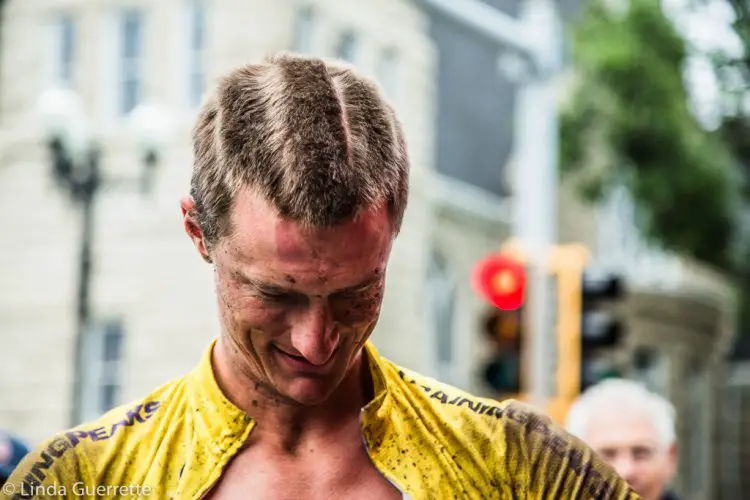
Words don’t describe the feeling of finishing the Dirty Kanza 200 – photo credit to Linda Guerrette www.lindaguerrettephotography.com; reproduced with permission from Nick Frey
Many of those 13 hours were spent sucking one wheel for dear life—that of Stephen Fitzgerald. I met him last year at DK200, and towed him during my return from numerous flat tires, and while he was hurting badly then, he was a man possessed this year. I knew SF was my only hope to get back to Emporia. It wasn’t even discussed for hours, but it was understood: Stephen was paying me back, I was surviving and not contributing, and he was to cross the line CLEAN, ALONE, and AHEAD of me. This is called comradery, collaboration, support, positivity, encouragement, etc etc. Everything that I live for on a bike. It was these few hours with one other soul, towing me through Kansas for no reason other than to help a fellow bike racer in need. He suffered for me to finish, just as I have suffered for others…call it the circle of life, living by the wheel, whatever you might want. But I believe this is the basis for everyone still racing bikes year after year, still encouraging each other to make those positive decisions, to bring more balance to a consumerist lifestyle, to maintain those relationships. It’s beautiful.
Stephen and I took water outside a feed zone from a random truck which proceeded up and down the race route, supporting anyone it could. I took water, gave it to him. He gave me water, food, etc. We shared, we commiserated, we survived. I did this with every single person I raced “against” throughout those treacherous 206 miles. We survived the entire time, any way we could. At one point, after going off course, I was yelled at by Kent Olson from a gorgeous barn telling me I’d missed a turn. Kent gave me two 32 ounce Gatorades, while explaining that his family has owned this land for over 100 years, and that as kids they tried to climb the hill I was supposed to race up just across his land. They rarely made it up successfully…and I would not have either were it not for his generosity.
At one point, my partner Drew was taking photos of the race, of the countryside, the epic nature of the event, of me racing my Boo gravel bike…and I screamed at him for water. He gave me gummy worms as well. My two compatriots passed the water around, shared the worms, survived for some more miles. We stopped again at the top of a hill to get more support from race volunteers from a local town. I literally told one of the men that without his bottle of water, I would not just have made it to the next aid station…I would have feared for my own safety. At this point, I could not hear my own words because my eardrums had stuck to my inner ears. I could barely get off the bike to take water from him, and choked when it couldn’t go down my parched, constricted throat.
This was with 75 miles to go.
Throughout the smaller towns, we took every ounce of water we could from young children cheering for us. We stopped at every opportunity. I stopped more than others as my partner Drew had actually given everything away to other racers on the course, and had nothing left for me at the last check with 45 miles to go. But he’d helped others make it further than they would have otherwise.
I later learned that Brian Jensen had dropped out of the race with just 55 miles to go. He was in second place, overall, with a healthy lead over third. He had full support from his wonderful wife Michelle, including Camel Baks, and could not make it the last 25% of the race to take one of the most coveted positions in this epic event. The fact that I was still breathing and pedaling was simply a miracle to me for which I was grateful and knew would have been impossible without the generosity of so many others.
In the end, I was told that other riders had protested me receiving outside support, and I was asked to volunteer my disqualification. I agreed. I had broken the rules, which as I read them were that I received outside assistance. In the haze of pain, dehydration, and suffering after this race, I thought only of black and white: I took water outside an aid zone. This is illegal. I broke the rules, I should be disqualified.
Since then, I’ve had a clearer and more able mind to contemplate this situation. It is so difficult to write this kind of blog and send it out into the small world of cycling. I run a bike company. I have raced for over half my life. Cycling and bikes are my life’s work, and I was just called a cheater when I was not only surviving, but doing what every single other person in my race was doing. I would NEVER throw anyone under the bus, but you better believe I’ll tip the bus over and set it afire.
And that is what I’m proposing. It is NOT right to take money and provide no support. To specifically decry outside assistance and yet encourage it in certain arbitrary circumstances…only as long as you don’t know the person supporting you. To strive to make an event mainstream, growing a BRAND that might have value to a larger corporation…and yet make no concessions to the safety of its participants…that is irresponsible. To somehow purport that DK is maintaining its street cred as an “unsupported” event and yet encourage paid support crews—it smacks of fraud.
This is a charade, a failure of character, an act of deception. And to defame my reputation, in the name of “protecting me”, is simply the greatest waging of the dog I have ever witnessed. I’m writing this blog to help explain myself, because to the 99% of folks who just go to the results website without any other knowledge, Nick Frey is DISQUALIFIED with no time checks to prove a single mile of his suffering, must lest uphold his reputation as a genuine and honest cyclist.
If this blog has a goal, it is to promote the discussion of what constitutes “neutral”, what makes a rule a RULE versus an arbitrary decision, and what the true spirit of gravel racing really IS. I believe that we need to determine the spirit of these events first, and propose that positive, supporting, encouraging, and fair should make up its foundation. That means providing neutral support such that each competitor has a fair shake, regardless of their monetary station in life, their ability to travel with a crew, and the competence of their supporters. I think this spirit is facilitated in large part by NEUTRAL SUPPORT, and can even encourage the community involvement which DK purports to desire.
Then that spirit must be defined by and encapsulated into RULES which are clear, black, white, enforceable. That means NO SUPPORT OF ANY KIND FROM ANY NON-COMPETITOR may be leveraged OUTSIDE of these neutral support stations. Oh, and by the way, each station should have a NEUTRAL mechanic….just like Leadville 100, which has more than twice the number of riders.
If any racer is seen taking ANY assistance from ANYONE outside of the race (and that means from any non-competitor), then they are disqualified.
That is a reasonable rule that maintains the comradery necessary for positive competition, and allows for racers to rely on neutral support if they aren’t so lucky to have local friends or the money to PAY for a for-profit support crew. And yeah, neutral aid staffed by volunteers is NEVER as quick, efficient, or successful as personal crews…but it’s better than nothing, and provides poor [unprepared] guys like me the ability to compete on at least a similar playing field.
Then, NEUTRAL aid stations should be staffed by volunteers who are briefed on how to support racers. Private support crews can also be there, and are encouraged to be…they’re also encouraged to help other racers in times of dire need! It’s at their discretion of course, but racers don’t need to be isolated and Bogart their resources…bad karma always comes back around.
If DK were to institute these kinds of rules and strategy, they’d find a wonderful event flourishing without threat of lawsuit, and without the negativity associated with crucifying a competitor and making an example of someone doing what many others were also doing. They have been lucky enough to have an honest person on the cross here, one who has enough reason and balance to understand all sides of the issue and realize what a difficult decision had to be made.
But you know what? A difficult decision can still be made right or wrong. And in this case, DK caving into the protests of a few riders and selecting the one for whom they have [apparently] photographic evidence against and disqualifying with no official explanation simply shows their weakness and inability to formulate a clear plan and stand behind it. But why should we expect anything different when their riders meeting instructions so clearly deviate from their written rules? Why would one trust a written word when the verbal version is in stark contrast?
If DK is able to pull itself together and create a strong, clear, consistent, and *reasonable* set of rules, then I think it’s a worthy event that will continue to grow over the years. If it does not overcome its weakness at the top and simply continues to arbitrarily decide outcomes of individual riders, based on “social media response”, then I think it will quickly collapse under the crush of its own popularity.
I personally hope I am able to come back, more prepared and able to race without a $1000+ investment in entry, travel, and crew, and potentially compete for the top step of the illustrious podium. But if DK continues trying to have its cake and eat it too…I fear mainstream gravel racing could be maligned as yet another failed experiment to bring together competitors in a positive way.

